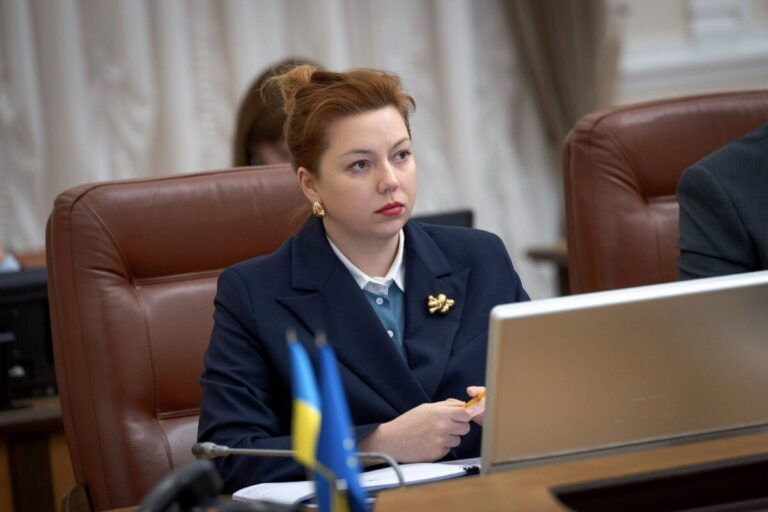1. General Provisions
1.1. This editorial agreement defines the principles of cooperation between the online media “Time for Action” (hereinafter – the Editorial Board) and freelance authors, journalists, photo correspondents, experts, columnists, and other contributors (hereinafter – Authors).
1.2. The Editorial Board may cooperate with anonymous authors or publish materials under pseudonyms, if justified by the subject matter or necessary for the author’s safety. Each such decision is made individually, taking into account editorial standards.
1.3. This document is an open public offer. Anyone submitting materials to the Editorial Board or cooperating with the publication in any form automatically accepts these terms and undertakes to comply with the specified rules.
1.4. The main purpose of this agreement is to guarantee the quality and reliability of published materials, ensure transparent and professional relations between the Editorial Board and Authors, and protect the interests of the audience, each author, and the Editorial Board as a whole.
1.5. This agreement applies to all types of content submitted for publication on the website: articles, analytical materials, news, interviews, photo reports, columns, blogs, announcements, and any other publications.
1.6. The fact that a material is published on the website does not automatically mean the Editorial Board supports the author’s position or views. Responsibility for the content and argumentation of the material lies with its author, unless otherwise decided by the Editorial Board.
1.7. Any issues not regulated by this document shall be resolved through separate agreements between the Author and the Editorial Board. The Editorial Board has the final say on the publication of any material and the format of cooperation.
2. Formats of Materials and Quality Standards
2.1. The Editorial Board of “Time for Action” considers for publication analytical articles, news, announcements, columns, reviews, and expert materials. Preference is given to texts that have social, analytical, or practical value for the audience.
2.2. Both unique materials and those containing references to public sources, official documents, or open data are accepted for review. In all cases, proper references to the original source or cited information are required.
2.3. The material should be no less than 500 and no more than 5,000 words. The optimal length is determined by the Editorial Board depending on the genre, topic, and overall requirements of “Time for Action”.
2.4. Texts must meet editorial standards: analytical accuracy, logical structure, absence of manipulation, clichés or unsubstantiated claims, and correct language. The style should be professional and modern, with depth but without pathos or distortion. Special attention is paid to facts, analysis, verified sources, and expert assessments.
2.5. Photo reports, video materials, infographics, and other multimedia supplements may also be accepted by prior arrangement with the Editorial Board. If the material requires illustration, the Editorial Board will select images independently from licensed sources or official photo banks.
2.6. The Editorial Board reserves the right to edit, shorten, or modify texts without the author’s approval, provided this does not affect the core content or the author’s position. If changes concern the essence of the material or its conclusions, the Editorial Board will coordinate amendments with the author.
2.7. The Editorial Board has the right to refuse publication without explanation if the text does not meet quality standards, genre, volume, or editorial policy.
2.8. Materials that have already been published elsewhere are generally not accepted. In exceptional cases, such texts may be placed if they are substantially adapted and the “Time for Action” website is credited as the source.
3. Procedure for Cooperation and Topic Coordination
3.1. Coordinating future topics with the Editorial Board is recommended but not mandatory for all authors. Regular contributors and experts may propose topics independently, provided they follow the general editorial standards and principles of “Time for Action”.
3.2. All matters regarding topic approval, as well as any organizational or work-related issues, are handled in writing via the Editorial Board’s official email, messengers, or the website contact form. The standard review period is up to three working days.
3.3. To receive accreditation or publish an event announcement, the author must agree on this in advance with the Editorial Board. Accreditation on behalf of “Time for Action” is issued only by arrangement with the editors. After accreditation, preparation of a separate summary article is not mandatory but is welcomed.
3.4. If a topic submitted by an author is already being prepared by other contributors or does not meet editorial policy, the author will be informed of the reason for rejection or postponement.
3.5. Coordination of headlines, captions, quotations, and additional elements with the editors is recommended, but the Editorial Board reserves the right to change these at its discretion, including in line with SEO requirements, structure, and the “Time for Action” style standards.
3.6. There is no limit to the number of materials an author may submit for publication. If submitted materials do not meet quality standards or editorial topics, the Editorial Board may decline publication without additional explanation.
4. Accreditation, Announcements, and Participation in Events
4.1. Obtaining accreditation for any event on behalf of “Time for Action” is possible only after prior approval by the Editorial Board. All communications with event organizers on behalf of the Editorial Board are carried out exclusively by prior arrangement. In rare exceptional cases, another decision may be made, but only with the direct consent of the editors.
4.2. Requirements for materials after accreditation are determined individually in accordance with editorial standards. Preparation of a full article following participation in an event is not mandatory, unless otherwise stipulated in a separate agreement.
4.3. Publication of event announcements is carried out only with editorial approval. Authors may not independently arrange announcements or publish information on behalf of the Editorial Board without prior agreement.
4.4. Announcements must be unique and include an original description, historical or social context, official information, contacts for organizers, and other relevant details. The use of fully copied materials from event organizers’ websites is not permitted.
4.5. Failure to comply with agreements on accreditation or announcements may be grounds for refusal of further cooperation, repeat accreditation, or the publication of future announcements.
4.6. An author’s attendance at an event does not oblige them to publish material about it, unless such a requirement was previously agreed with the Editorial Board.
5. Requirements for Originality and Responsibility for Plagiarism
5.1. All materials submitted to the editorial office of “Time for Action” must be original. The minimum acceptable originality of the text is 75%, unless otherwise agreed with the Editorial Board in advance.
5.2. The use of quotations, excerpts from open sources, official documents, or materials is permitted, provided they are properly formatted and referenced to the original source.
5.3. Plagiarism is defined as the use of another person’s material without proper attribution, including paraphrasing without indicating the source. Reusing one’s own previously published texts (“self-plagiarism”) is only allowed if the content is substantially revised and presented in an updated, higher-quality form.
5.4. If plagiarism or copyright infringement is detected, the Editorial Board reserves the right to reject the material, notify the author of the violation, and terminate further cooperation. In cases of systematic or serious violations, the Editorial Board also reserves the right to inform other media outlets or professional organizations.
5.5. The use of illustrations, photographs, quotations, and any other supplementary materials from third-party sources is permitted only with prior agreement from the Editorial Board. In such cases, attribution is recommended, but the final decision depends on the specifics of the material and the publication format.
6. Editorial Editing, Publication, and Right of Refusal
6.1. The editorial office of “Time for Action” reserves the right to edit, shorten, or modify submitted materials without additional coordination with the author, provided this does not affect the essence or key points of the publication. In case of significant changes that may alter the content or the main idea of the material, the Editorial Board will coordinate such changes with the author.
6.2. The author has the right to request the removal or revision of their material if, after editorial intervention, the content has undergone significant changes compared to the author’s original intent.
6.3. The Editorial Board reserves the right to refuse publication without explanation. However, in most cases, the Editorial Board will inform the author of the reason for refusal.
6.4. If a material is not accepted for publication, the author may revise it in accordance with the provided comments and resubmit it for consideration.
6.5. Submitted materials are reviewed and a response provided to the author within the timeframes set by the Editorial Board, usually within 3-5 working days. If the review process is delayed for objective reasons, the Editorial Board will inform the author.
7. Termination of Cooperation, Rights and Obligations of the Parties
7.1. Both the editorial office of “Time for Action” and the author have the right to terminate cooperation at any time without explanation. If work is underway on an already approved material or project, it is advisable to complete the preparation of the material or notify the other party of the decision to terminate cooperation before publication.
7.2. The Editorial Board reserves the right to modify or remove already published materials at its own discretion if there are grounds for doing so (for example, rule violations, receipt of substantiated complaints, emergence of new significant information, or a change in circumstances).
7.3. The author has the right to use their materials after publication on the “Time for Action” website, provided that a reference to the original source is included. Further use conditions may be determined by separate agreement with the Editorial Board or according to the standard editorial policy.
7.4. Responsibility for the content, accuracy, and compliance with legislation in materials submitted to the editorial office lies with the author. The Editorial Board does not bear responsibility for possible consequences of publication, unless otherwise stipulated by separate agreement or law.
7.5. The author undertakes to comply with the requirements of current Ukrainian legislation, as well as ethical and professional standards of journalism when preparing and submitting materials to the editorial office.
8. Final Provisions and Contacts
8.1. This editorial agreement is public and open for review. It applies to all authors and contributors cooperating with the online media “Time for Action,” regardless of the form of cooperation.
8.2. All issues arising during cooperation and not regulated by this document shall be resolved through direct dialogue between the author and the editorial office.
8.3. The current version of this agreement is published on the official website of “Time for Action.” The Editorial Board reserves the right to make changes to this document, with mandatory notification of authors regarding any significant updates.
8.4. For all matters concerning cooperation, suggestions, clarifications, or comments, please contact: [email protected]
9. Honoraria and Commercial Terms
9.1. In certain cases, the editorial office of “Time for Action” may offer an honorarium to the author for the preparation and publication of material. The amount, procedure, and payment terms are determined individually as a result of agreement between the editorial office and the author.
9.2. Commercial cooperation, payment for special projects, and other financial matters are negotiated separately in each case. The terms of such cooperation may be set out in a separate written or electronic contract.
9.3. In the absence of a separate agreement, all materials submitted to the editorial office are considered to have been submitted free of charge.
10. Processing of Personal Data
10.1. Submission of materials, requests, or cooperation with the online media “Time for Action” involves providing certain personal data (name, surname, contact phone number, email address, social media profile, etc.) for the purpose of author identification, organizing communication, and managing editorial cooperation.
10.2. The processing, storage, and protection of personal data are carried out in accordance with the Law of Ukraine “On Personal Data Protection” No. 2297-VI of June 1, 2010, as well as the requirements of current Ukrainian legislation, and, in the case of cooperation with authors from the EU, the main provisions of the European Union General Data Protection Regulation (GDPR).
10.3. Personal data are used exclusively for communication, identification, and editorial procedures. Data are not shared with third parties without the author’s consent, except in cases required by law.
10.4. The author has the right to:
- obtain information about the scope and manner of processing their personal data,
- request correction or clarification of data,
- request the deletion of personal data after the end of cooperation, provided this does not conflict with legal requirements or affect the preservation of archives or protection of the editorial office’s rights.
10.5. If the author has questions regarding the processing of personal data, they may contact the editorial office via the contact address provided in this document.
11. Responsibility for Accuracy, Language, and Ethics
11.1. The Editorial Board categorically does not accept for publication any materials containing fake information, hate speech, discriminatory statements, calls for violence, or incitement of interethnic, racial, or religious hatred.
11.2. If fake content, manipulation, or violations of journalistic ethics are detected in the material, the Editorial Board has the right to modify, remove, or retract such a text at any time, even after it has been published on the website.
11.3. In case of violations of these requirements, the Editorial Board reserves the right to terminate cooperation with the author and to inform the professional community about cases of dissemination of unreliable or dangerous information.
12. Dispute Resolution
12.1. All disputes arising between the author and the Editorial Board concerning rights to materials, content, publication procedure, or the use of texts shall be resolved through negotiations and direct dialogue.
12.2. If the dispute cannot be resolved through negotiation, the parties have the right to apply to the court in accordance with current Ukrainian legislation.
13. Appealing Editorial Decisions
13.1. If an author disagrees with the Editorial Board’s decision regarding edits, refusal to publish, or other matters, they have the right to submit a written request to the editor-in-chief or a designated representative for a review of the situation.
13.2. The Editorial Board shall review such requests within a reasonable period and notify the author of the final decision. Repeated appeals on the same issue are not permitted.
Current version as of July 1, 2025.
This editorial agreement is based on the standards of professional ethics, the requirements of current Ukrainian legislation (including the Law of Ukraine “On Information,” the Law of Ukraine “On Copyright and Related Rights,” the Law of Ukraine “On Personal Data Protection”), as well as the best practices of modern media.
All changes and updates to this document are recorded with the date of amendment and listed in the corresponding section of the page.




